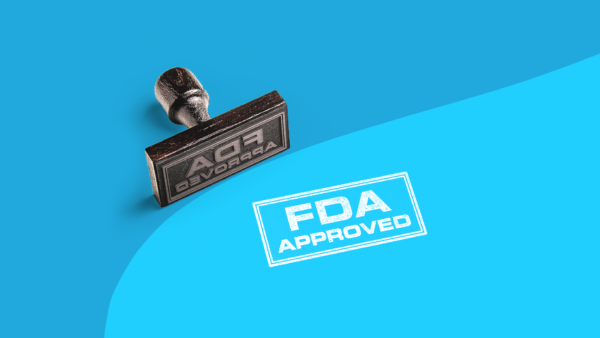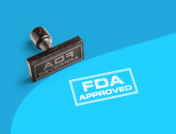Key takeaways
There are no OTC systemic antibiotics in the United States. The U.S. Food and Drug Administration (FDA) maintains these drugs in prescription status to prevent overuse, misuse, and resistance. A doctor’s prescription is required, and it must be obtained from the pharmacy.
Only a licensed medical provider can determine if antibiotic treatment is appropriate and what class of antibiotics is best for an infection. A wide range of bacterial infections is possible, and they must be evaluated thoroughly.
Symptoms may be similar between viral and bacterial infections, but administering an antibiotic for a viral infection can cause harm and will not provide relief.
The development of new types of antibiotics in the last 40 years has slowed significantly. As bacteria evolve, we have fewer options for successful treatment and eradication.
Responsible antibiotic prescribing is a key issue to the health of our society as a whole and ensuring we continue to be able to treat serious antibiotic infections for ourselves and others successfully.
While amoxicillin does not have many drug interactions, some antibiotics can significantly impact the safety and effectiveness of other drugs. Always report other medications you take when seeking medical advice for a suspected infection.
Table of Contents
Amoxicillin is a beta-lactam antibiotic in the penicillin antibiotic family. Amoxicillin is a broad-spectrum antibiotic available only by prescription in the United States for various bacterial infections, and there is no over-the-counter (OTC) equivalent. A licensed healthcare provider, such as a doctor or nurse practitioner, must issue a prescription order for you to acquire amoxicillin.
Penicillin in its original form was discovered in 1928 by chance, and antibiotics continue to evolve even 100 years later. Bacteria are smart organisms. They adapt to survive. The bacteria will adjust and overcome after repeated exposure to the same antibiotic. It is critically important for our drug use and development to account for this ability and preserve the efficacy of our arsenal of antibiotics. Amoxicillin was introduced in the 1970s and was a significant antibiotic development. Amoxicillin is more stable in the gastrointestinal environment than penicillin and is better absorbed than another antibiotic in the same family, ampicillin. Because of these advantages, amoxicillin is less likely to cause side effects like diarrhea than its counterparts.
Amoxicillin is most commonly used in respiratory tract infections, sinus and ear infections, and skin-related infections. It may also be used for urinary tract infections and strep throat. Amoxicillin is void of serious side effects in most patients unless there is a history of an allergy to the same class. If you have a penicillin allergy, you are also likely to have an allergic reaction to amoxicillin and should not take amoxicillin.
Amoxil was one of the original brand names of the active ingredient amoxicillin, and it comes in many strengths and dosage forms. These include oral capsules, chewable tablets, and liquid suspensions. While the solid oral dosage forms can be kept at room temperature, the suspension should be refrigerated once reconstituted. Amoxicillin can be used in children and adults with no history of an allergic adverse reaction to penicillin-like antibiotics.
RELATED: Amoxicillin vs. penicillin: Differences, similarities, and which is better for you
Can you get amoxicillin over the counter?
Amoxicillin is not available over-the-counter or without a prescription in the United States. There is no similar or equivalent product available over the counter. This drug requires a licensed healthcare provider to issue your prescription for amoxicillin or any antibiotic after a thorough evaluation. Antibiotics are prescription drugs that are only indicated and effective for bacterial infections. Many viral infections can mimic and have similar symptoms to bacterial infections, but antibiotics will not provide resolution to viral infections. Utilizing antibiotics for viral infections is dangerous because it can lead to antibiotic resistance and leave you with minimal treatment options for actual bacterial infections in the future.
RELATED: Amoxicillin (Amoxil) alternatives: What can I take instead of amoxicillin?
Are there antibiotics you can get over the counter?
There are no systemic antibiotics available over the counter in the United States. There are topical preparations that contain antibiotics for local, superficial use. These include Neosporin (neomycin, bacitracin, polymyxin) and polysporin (polymyxin, gramicidin). These products would be appropriate for treating minor skin abrasions that are vulnerable to infections. Topical antibiotics would not be adequate for a wound that is warm to the touch or oozing. These symptoms can indicate a more serious infection. This type of wound requires medical attention and possible prescription medications for treatment.
Risks and danger of OTC antibiotics
In countries with over-the-counter antibiotic options, these medications are used unnecessarily and inappropriately up to 50% of the time. Antibiotic resistance is high in these countries due to the drug being used for inappropriate purposes as well as being dosed incorrectly or taken for an inadequate amount of time. The United States continues to educate doctors on the appropriate prescribing of antimicrobials to preserve the efficacy of our current antibiotic arsenal. Since 1987, there has been a significant lapse in new antibiotic discovery and development. Unfortunately, the bacterial spectrum has continued to evolve.
Amoxicillin is eliminated primarily in the renal system. Therefore, patients with kidney disease or other medical conditions related to the kidneys may not be able to take amoxicillin or may have to adjust the dose.
There are a few very important aspects of antimicrobial therapy:
- Viral infections can not be cured with antibiotics and should not be subjected to antibiotic treatment.
- Not all bacterial infections require the use of antibiotics. Some infections are self-limiting, and while temporarily inconvenient, the body can eradicate some bacterial infections with its immune system response.
- Suppose you do not take an antibiotic at the prescribed dose for the prescribed period of time. In that case, the bacteria you fight are given a better chance to evolve and resist antibiotic therapy. This will render it ineffective for future uses. This is dangerous for infections with limited antibiotic options or in a patient with certain antibiotic-class allergies because there won’t be many treatment options left if there is a severe infection in the future. At the end of a course of treatment, you should not have any extra doses, and you should not share the antibiotic with anyone else.
- Your healthcare provider may rely on your medical history, treatment history, known antibiotic sensitivities, and blood or tissue cultures to determine the best treatment and minimize the chances of antibiotic resistance or ineffectiveness.
What is similar to amoxicillin over the counter?
There are no broad-spectrum oral antibiotics similar to amoxicillin available over the counter. The only antibiotic options available without a prescription are topical preparations for minor skin lacerations. Your healthcare provider should evaluate any suspected infection to determine the appropriateness of antibiotic therapy.
Other OTC medications may still be important in treating a bacterial infection. For instance, patients with an upper respiratory infection may be recommended expectorants, decongestants, or cough suppressants over the counter to manage symptoms in addition to the antibiotic for the infection. OTC fever reducers, such as acetaminophen, are also critical in supportive care. Consult with your prescriber or pharmacist to ensure the combined regimen is safe.
Some vitamins and supplements will help boost and improve the function of your body’s immune system in fighting an infection. Vitamin C, zinc, and vitamin D are critical to your immune response. Many professionals recommend taking these daily to maintain health, not just when ill.
If you suspect you have an infection but can’t be seen right away, consider the following:
- Maintain adequate hydration and increase your water intake
- Take immune-boosting supplements such as vitamin C, vitamin D, and zinc
- Eat a healthy diet packed with vitamins and minerals
- Treat symptoms with OTC symptomatic treatment
- Use natural options for symptom relief as well, such as honey, humidifiers, and steam
Sources
- A Brief History of the Antibiotic Era: Lessons Learned and Challenges for the Future, Front Microbiol (2010)
- Introduction: Historical perspective and development of amoxicillin/clavulanate, Int J Antimicrob Agents (2007)
- Why do people purchase antibiotics over-the-counter? A qualitative study with patients, clinicians, and dispensers in central, eastern, and western Nepal, BMJ Global Health (2021)
- Challenges of Antibacterial Discovery, Clin Microbiol Rev (2011)











